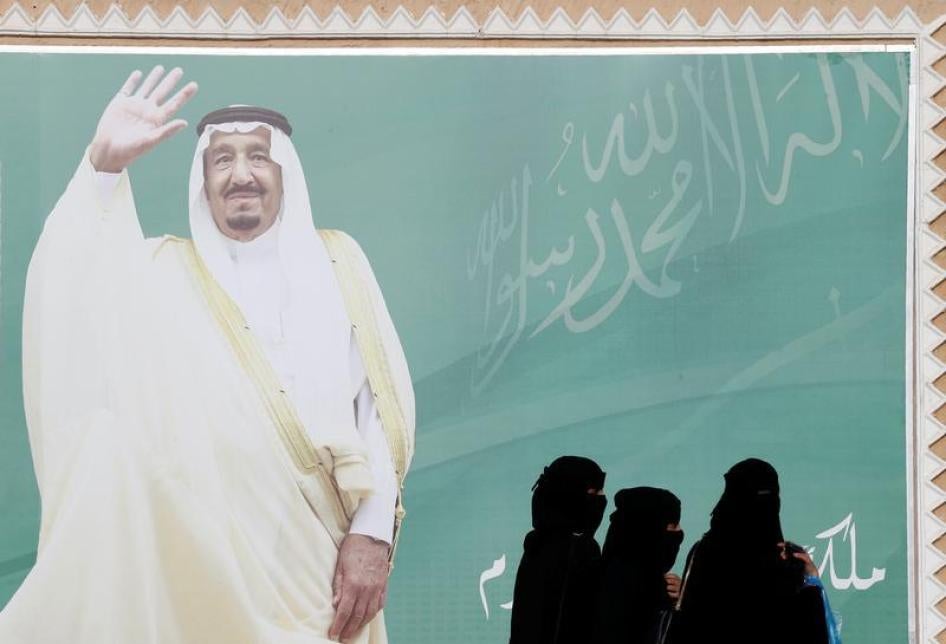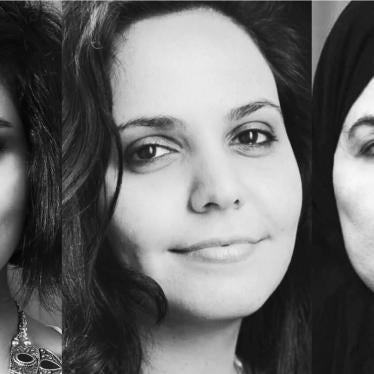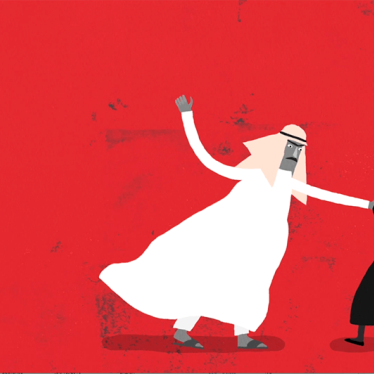But Loujain is in jail. She, along with a dozen other women's rights activists who have been detained, have been on a cruel and unpredictable rollercoaster ride.
Just a few days after their arrests in May 2018, the Saudi Presidency of State Security issued a statement alleging that the women were detained for "suspicious contacts with foreign agencies". Crown Prince Mohammad bin Salman later repeated this allegation, saying that the women were involved in "intelligence work against Saudi Arabia" on behalf of countries such as Qatar and Iran.
These allegations, spread via a public smear campaign in the Saudi media, hung over the women during the nine months they were detained without charge. Some of the women alleged that Saudi authorities brutally tortured them, including with electric shocks, whippings, and sexual harassment and assault.
We knew that the women were arrested for their activism but were expecting trumped-up charges, based on the previous allegations. So I was shocked in March when we finally began hearing about the content of the women's charge sheets, which merely recounted a litany of their women's rights work without a clear explanation of how such activism was "criminal".
In addition, it turned out that the alleged "suspicious contacts" were not with foreign intelligence agencies as the crown prince alleged, but rather with international journalists, foreign diplomats of Saudi Arabia's allies, Saudi human rights activists abroad, and international human rights organisations such as Human Rights Watch.
One report even said that al-Hathloul faces the ludicrous charge of applying for a United Nations position.
But I should not have been surprised by any of this, because nothing about these cases has been normal.
Though Saudi Arabia has mistreated its human rights activists for years, prior to these arrests the detention of women was rare, and authorities' torture of women was nearly unheard of.
Women activists faced arrest but usually after they had protested or defied the driving ban. This time, the women were arrested in a coordinated crackdown at their homes in the middle of the night.
The alleged torture, which apparently occurred at an unofficial detention site, indicates a clear degradation of humane treatment and the rule of law under Mohammad bin Salman. It's alarming that the abuse of detainees has reached a point where al-Hathloul's thighs were "blackened by bruises" as her sister said, or that at least one of the women had been groped, as we have been reliably informed.
Another irregularity was an 11th hour change of courts. Sources told us that the trials were initially slated to take place in Saudi Arabia's notorious Specialised Criminal Court, which has jurisdiction over terrorism-related crimes, but the evening before, the Saudi authorities informed detainees' families that the trials had been moved to Riyadh's regular criminal court.
A Saudi lawyer said that such a switch is highly irregular, as prosecutors would normally submit charges to the relevant court well in advance, and a change would require the initial court to rule that it lacked jurisdiction.
The move, he said, indicates political influence over the court proceedings. There have been near-constant rumours and indications that Saudi authorities would back down, only to watch them dig in further. The women were required to sign letters seeking pardons, giving us hope that they would be released. But days later, the prosecutor issued a statement saying he would refer them for trial.
Informed sources told us that Saudi authorities repeatedly told the women in detention that they would soon be released. When the court did finally "temporarily release" three women facing trial in early April, including the prominent activists Eman al-Nafjan and Aziza al-Yousef, we understood from judges' statements that the others would be released shortly thereafter.
Yet it still hasn't happened, and the authorities detained al-Yousef's son a few days later along with about a dozen others who are connected with or supported the detained women's rights activists.
A court hearing scheduled for April 17, during which we expected some judgments would be handed down, was cancelled without explanation.
From the beginning, the detention and trial of Saudi women's rights advocates has defied expectations, and it is impossible to predict what the results will be - it could just as easily be a 20-year prison sentence, as Saudi state media initially reported last summer, as a suspended sentence with no prison time.
What is beyond question is that the women never should have faced this prolonged ordeal in the first place, and their alleged mistreatment demands a serious investigation and accountability.
These heroic women, many of them like Loujian al-Hathloul internationally recognised for their women's rights activism, have spent years on the front lines of the fight for more rights and autonomy for women.
They deserve a place of honour in Saudi society, not a prison cell.
Adam Coogle is the senior researcher for Saudi Arabia at Human Rights Watch.










